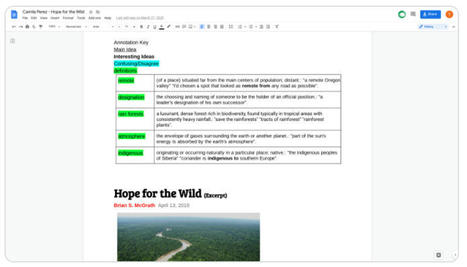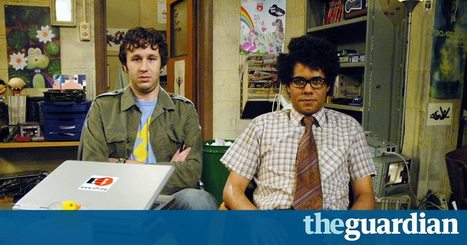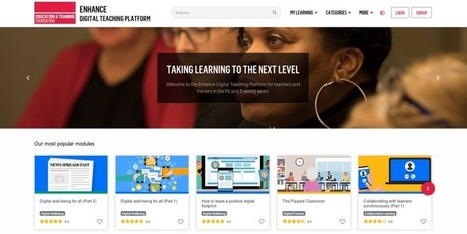Applied Digital Skills is a great resource from Google for Education that offers a wide variety of digitally-focused lessons to integrate in both in-class and distance instruction. Its library includes over 100 video-based lessons spanning various topics and skill sets. You can browse the lessons by audience (late elementary, middle school, high school, or adult learners), digital tool (e.g., Docs, Drawings, Slides, Sheets, Meet, Sites, etc), and by topic (e.g., Art, Digital Citizenship, Science, Math, Social Studies, Computer Science, etc.).
Research and publish the best content.
Get Started for FREE
Sign up with Facebook Sign up with X
I don't have a Facebook or a X account
Already have an account: Login
Literacy in a digital education world and peripheral issues.
Curated by
Elizabeth E Charles
 Your new post is loading... Your new post is loading...
 Your new post is loading... Your new post is loading...

Mary Reilley Clark's curator insight,
April 18, 2019 1:31 PM
A good overview to share with teachers and students. I've been sharing the concept of lateral searching with students this year. Several have reported how helpful it is when they're researching controversial topics, especially when they find blog posts at the top of their search results. They now look up the blog'a author before continuing to read the post itself. In many cases, they've found no information on that author, which makes them think twice about using that source!
|
|


















